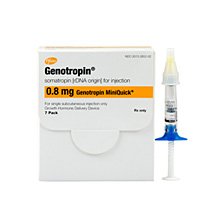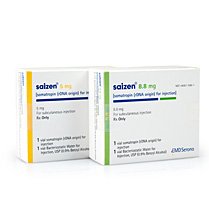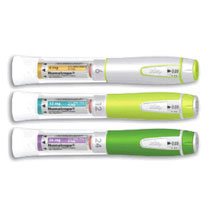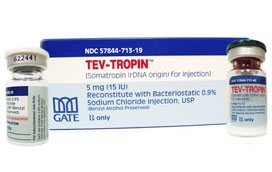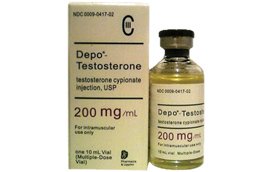How Does Low Testosterone Influence Bones

Low testosterone and bones have a clear correlation according to an endocrinologist at Virginia Mason Medical Center in Seattle and a clinical faculty member of the University of Washington in Seattle. Low T can create low bone mineral density and osteoporosis. Osteoporosis is when bones thin so much that they become brittle, porous and have a great likelihood of fracturing or breaking.
This same doctor observed and sited that men tend to be more active over their lifespan than women, which may protect their hormones and bone mass from developing osteoporosis. Hence, he states that exercise may increase testosterone and protect bones.
According to WebMD, this doctor stated:
“The most common cause of male osteoporosis is testosterone deficiency. There’s a clear consensus that when you’re evaluating men with osteoporosis, you always evaluate for testosterone deficiency.”
In days past, doctors would not usually test for a testosterone deficiency when men presented with issues such as low bone density. Doctors did not even think about low T or consider how replacing lost hormones can make such a large difference in the lives of those who were deficient. However, today, testosterone replacement therapy is more popular than ever and can make a huge difference in the health of its patients.
“There’s a clear consensus that when you’re evaluating men with osteoporosis, you always evaluate for testosterone.”
It is highly important to keep up with your hormonal output within the body. How? This can only be done by the proper blood testing. Before leaping into using chemically filled drugs, consider testosterone for bones through TRT. This is a way to naturally use bio-identical injectable hormone medications that are prescribed in just the right dosage to bring about stronger bones and a healthier more active lifestyle well into your golden years.
Low Testosterone And Bone Density
Low testosterone and your bones have a direct connection. Taking care of your bones with making sure your testosterone levels stay balanced is important for now and later in life to avoid fractures and breaks of your bones.
Although when most people hear the word testosterone they think of big muscle men with raging sexual drives and sometimes aggressive behavior. Stereotypes can certainly make things complicated, especially when it comes to hormones. That way of thinking is not completely accurate. There is a whole lot more involved with low testosterone levels.
Most people do not think about how important testosterone is for women either. Well, it is. Testosterone in small amounts must circulate around a woman’s body to help keep her active, strong and healthy. Women need to understand the importance of testosterone on bones.
In women, this hormone is created in the ovaries. In men, it is made in the testicles. Some testosterone is also manufactured in the adrenal glands. When these slow down, so does everything else. Low testosterone may eventually pose a problem for both men and women and with bone loss.
According to the National Institutes of Health (NIH), approximately five million men have low testosterone levels that can affect their bone mineral density and cause problems. The good news is that doctors in clinics such as Greenberg Health can treat this problem easily with testosterone replacement therapy. This means that both genders have a healthy way to prevent or to slow down bone loss as they age.
Research Says Testosterone Therapy Can Stop Bone Density Loss
Here are some truly amazing clinical studies that prove the connection between testosterone and bones. The research is very clear about how having balanced levels of this hormone can prevent bone loss.
- The Journal of Clinical Endocrinology and Metabolism’s study proved that as men age and their serum testosterone concentrations decrease, so do their bone densities. Bone density will also be low in hypogonadal men (men with low T). The study proved that by increasing the serum testosterone concentrations with the right dosage of injectable testosterone, this increased the bone densities in men in the control group versus the placebo group.
- Another article published in the Journal of Clinical Endocrinology and Metabolism concluded that testosterone replacement therapy appeared to be well tolerated by over 84 percent of the subjects of the study. The article claimed that long term testosterone replacement appears to be a very effective and safe way to treat men with low bone density due to aging. The article does state the importance of medical supervision during TRT with follow up blood tests and examinations.
- The Journal of Osteoporosis shared the importance of testosterone and bones for gain and maintenance of their strength. The article posed the idea that men with low T have accelerated bone loss and an increase risk for fractures and breaks. The study also showed that giving men testosterone replacement therapy inhibited bone resorption and maintained their bone mass.
- A very interesting conclusion was published in the Journal of Clinical Endocrinology and Metabolism. The researchers demonstrated that through TRT, bone density can increase in men with low T and who already developed osteoporosis.
WebMd shared that about two million American men have osteoporosis and 12 million men are at risk for this disease. Other men may show early signs of low bone density and bone loss. If they can catch this in time with testosterone blood testing and can work with a clinic like Greenberg Health, they do not have to risk the possibility of losing quality of life because of bone breakage.
We understand the true importance of testosterone and bones and will do everything in our power to help qualified patients to have a flawless and enjoyable testosterone replacement therapy experience. Our current patients now live without the fear of developing further loss of bone mineral density and feel confident that they are avoiding the risk of developing osteoporosis.


















 Norditropin
Norditropin